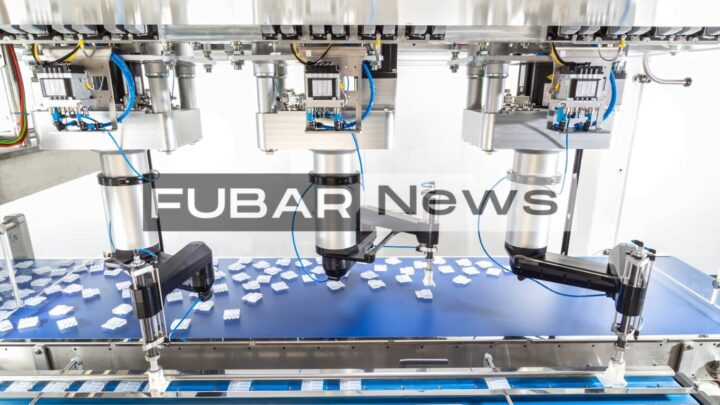Introduction
Packaging is a crucial aspect of modern-day businesses, ensuring that products are protected and presented attractively to consumers. As the demand for packaged goods rises, so does the need for efficient packaging solutions. Packaging machines have emerged as the backbone of the packaging industry, providing a seamless and automated way to package goods. In this article, we will delve into the world of packaging machines, exploring their functionality, benefits, and impact on various industries.
Packaging Machine: The Backbone of Modern Packaging
Packaging machines(포장기계) are sophisticated and versatile devices that automate the packaging process. They are designed to handle various packaging tasks, such as filling, sealing, capping, labeling, and wrapping, with precision and efficiency. These machines come in different types, ranging from simple, semi-automatic models to complex, fully automated systems. Their ability to handle large volumes of products at high speeds has revolutionized the packaging industry, making them an indispensable asset for businesses.
Understanding the Working Principles of Packaging Machines
Packaging machines employ advanced technology to ensure accuracy and reliability in the packaging process. Some key components that enable their smooth functioning include:
1. Sensors and Detectors
Packaging machines are equipped with sensors and detectors that monitor various parameters during the packaging process. These sensors help detect inconsistencies or faults, ensuring the packaging is done correctly.
2. Programmable Logic Controller (PLC)
PLCs act as the brain of packaging machines, controlling and coordinating different functions. They are programmable and can be customized to suit specific packaging requirements.
3. Conveyors and Hoppers
Conveyors facilitate the smooth movement of products through different stages of packaging, while hoppers hold and dispense materials such as powders, granules, or liquids into containers.
The Versatility of Packaging Machines
Packaging machines cater to a wide range of industries, each with unique packaging needs. Some of the key sectors where packaging machines have made a significant impact include:
1. Food and Beverage Industry
Packaging machines have transformed food and beverage packaging, ensuring hygienic and tamper-proof sealing. From filling bottles with beverages to packaging snacks, these machines streamline the entire process.
2. Pharmaceutical and Medical Industry
In the pharmaceutical sector, precise packaging is crucial to maintain the integrity of drugs and medical devices. Packaging machines offer controlled and sterile packaging, adhering to strict industry regulations.
3. Cosmetics and Personal Care Industry
Packaging machines play a vital role in the cosmetics industry, enabling efficient and aesthetic packaging of various beauty and personal care products.
Advantages of Packaging Machines
The widespread adoption of packaging machines can be attributed to the numerous benefits they offer. Some of these advantages include:
1. Increased Efficiency and Productivity
Packaging machines automate the packaging process, significantly reducing manual labor and human errors. This leads to enhanced productivity and faster packaging turnaround times.
2. Consistency and Precision
These machines ensure uniformity in packaging, maintaining consistent product quality and presentation, which is essential for brand identity and customer satisfaction.
3. Cost-Effectiveness
Although the initial investment in packaging machines may be substantial, the long-term cost savings are significant due to reduced labor and material wastage.
4. Safety and Hygiene
Packaging machines provide a hygienic and contamination-free packaging environment, especially crucial for industries like food and pharmaceuticals.
5. Flexibility and Customization
Modern packaging machines can be easily adjusted to handle different packaging sizes and formats, offering businesses the flexibility to adapt to market demands.
FAQs about Packaging Machines
Q: What types of products can be packaged using packaging machines?
A: Packaging machines can handle a wide range of products, including liquids, powders, granules, solids, and even delicate items like fruits and vegetables.
Q: Are packaging machines easy to maintain?
A: Yes, most packaging machines are designed for easy maintenance, and routine servicing ensures their optimal performance.
Q: Can packaging machines accommodate different packaging materials?
A: Absolutely! Packaging machines can work with various materials, such as plastic, glass, metal, and cardboard.
Q: How do packaging machines contribute to sustainability?
A: By minimizing material wastage and optimizing packaging sizes, these machines help reduce the environmental impact of packaging processes.
Q: Can packaging machines be integrated into existing production lines?
A: Yes, many packaging machines are designed to be easily integrated with existing production setups, enhancing overall efficiency.
Q: Do packaging machines require specialized training to operate?
A: While some complex systems may require specific training, most packaging machines come with user-friendly interfaces and are relatively easy to operate.
Conclusion
Packaging machines have undoubtedly revolutionized the packaging industry, streamlining processes, and elevating product presentation. Their versatility, precision, and cost-effectiveness make them an invaluable asset for businesses of all sizes and across various sectors. As technology continues to advance, we can expect even more innovative and efficient packaging solutions to emerge, further enhancing the way we package goods.


